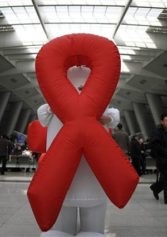
This is Atlanta’s only mission-driven men’s health charity to bring mental health, social, economic and life support to men of color in dire need.
Since 2012, HIM has been targeting vulnerable men who are homeless, incarcerated or at risk for infectious diseases like HIV. The organization provides group counseling and outreach services. Currently, in its limited shared space, the program is serving a few dozen clients a month.
“The reaction has been positive to what we’re doing, and because the need for men’s supportive health services is significant, I think it hasn’t taken a lot of convincing,” Tisdale said. “Even large health agencies like AIDS Healthcare Foundation have supported us from the start with condoms and HIV literature when our supplies were nonexistent. Plus, we’ve heard from public health leaders in all surrounding counties about possible future collaborations.”
According to the 2012 Georgia Department of Public Health HIV Epidemiology Survey, about 64 percent of new HIV infections reported that year were in Black/non-Hispanic people, and 74 percent of these people were men. Of all the people diagnosed with HIV in 2012, Blacks accounted for 70 percent of stage 3 (full-blown AIDS) diagnoses.
Thus, it’s clear that more help is needed in reaching men, especially Black men, and closing the gap in health care.
“The focus of our work is to support all men and service providers working with vulnerable men to better provide culturally relevant mental health service, appropriate infectious disease care and other evidence-based health interventions. As an institute, we are up to this challenge because in 2014 we must,” says Tisdale, in our interview.
The organization, which officially became a 501(c)3 charity recognized by the Internal Revenue Service, will be holding a fundraiser on Nov. 6 at the DMARC Cafe in Tucker, Georgia. The funds will go to securing a new and permanent space for HIM, so they can expand the services to the community.
The man behind the institute, Walker Tisdale III, tells us why HIM Atlanta exists to serve him:
“As an African-American male who has worked for health departments in Detroit, Chicago and New York and even seven years at the Centers for Disease Control and Prevention, I know firsthand how devastating Black men’s health disparities have been in this country. It took an assignment on behalf of CDC to Uganda about 10 years ago for me to realize exactly how primitive public health services were in Uganda compared to the USA, especially given the funding disparities. The U.S. budget for HIV prevention and care is equal to the GDP of several African countries. And yet, public health disparities for Black and other minority males are endemic in the USA. It was when I returned to the USA from Uganda that I knew one day I’d leave government service and get back to the community.”
More information can be found online on the group’s website at HIMAtlanta.org
S.C. Rhyne is a blogger and novelist in New York City. Follow the author on Twitter @ReporterandGirl, http://Facebook.com/TheReporterandTheGirl and visit her website at http://www.TheReporterandTheGirl.com


